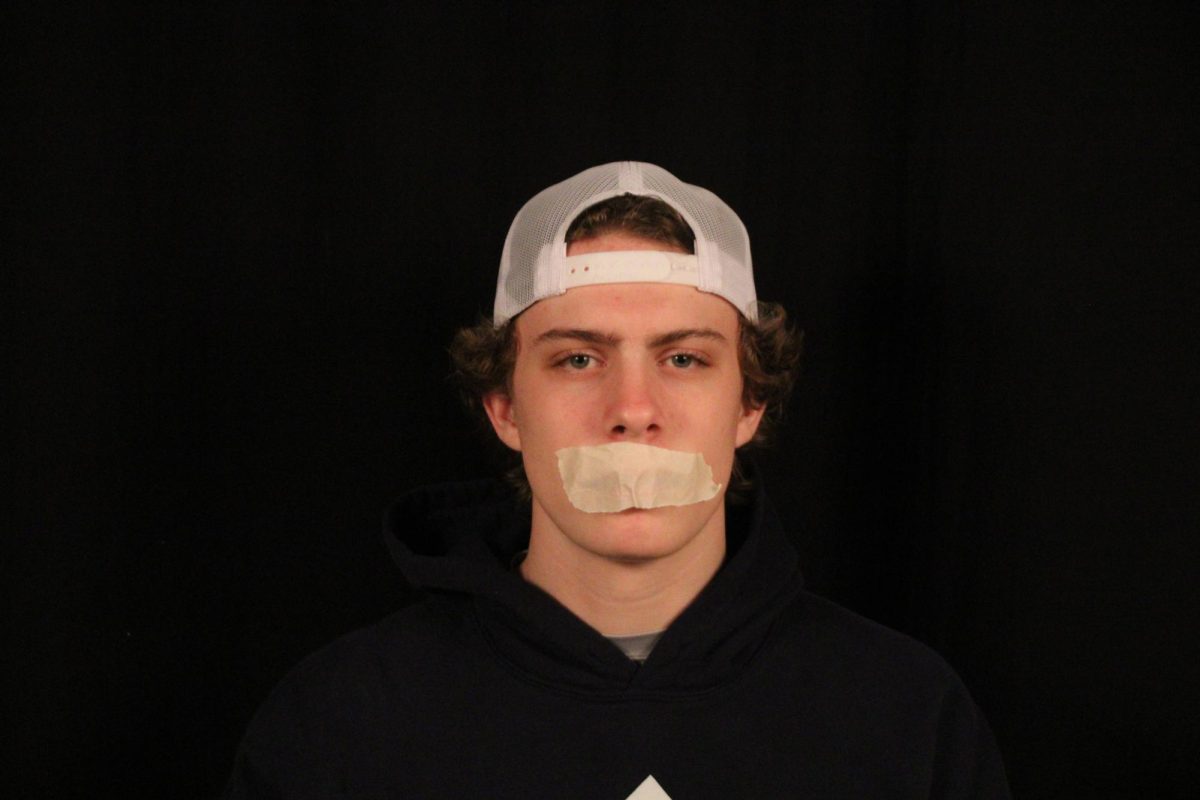You sit in your car as another tardy notification rolls into your Infinite Campus record, signaling the sixth class you’ve missed this week. Your grades have slipped, and the once straight A’s you carried are now C’s and D’s. You haven’t spent time with friends or family in ages. Every time you do, you lash out. The school’s guidance counselors and teachers have tried to talk to you, but you brush off the meetings. Right now everything feels hopeless. You have no interests or motivation, and spend most of your time alone. You have gotten several write ups from teachers due to behavioral issues. A reputation of an angry teenage boy has started to grow around you. Your friends are worried, but you don’t want to talk to them, you aren’t known for being emotional.
Mental health has become a very widespread and urgent topic across the United States. It has become less taboo to aid teenagers and adults with mental health issues and disorders, but suicide is still the 11th leading cause of death in the US, according to the American Foundation for Suicide Prevention (ASFP). In 2021, there was an estimated 1.7 million suicide attempts, the highest rates in middle aged white men, accounting for 69.68% of suicides. Men committed suicide 3.9 times more than women.
“I think a lot of men think that they need to be tough for whatever [reason], and not show their emotions, but that’s kind of the problem.” Rylan Quick, Junior, said.
Quick says most men feel pressure from peers to be as masculine as possible, and their surroundings push them to mask their emotions in order to maintain the “manly” personality that is conveyed to others. Stereotypically, the idea of searching for help with emotional turmoil, in forms of therapy or reaching out to friends and family, is associated with women. Many women feel as if this is a misogynistic viewpoint, labeling women as “too emotional” and “weak,” according to the University of Michigan in a news release, citing senior Adriene Beltz. And while that may be true, it affects men in a different way.
“I think it’s a little bit different [between men and women],” Joe Fisch, 10th grade counselor, said. “I think there’s always that stigma of ‘you’re a male, you [have to] be tough, you [have to] push through, don’t let things worry you, you’ll be fine’.”
This stereotype impacts mens ability to open up and learn how to cope with their emotions. Students including sophomore Charlie Buesching, feel as if they are not the target audience for resources available.
Charlie Buesching, sophomore, said. “It’s kind of frowned upon to talk about in society.”
Buesching said for many men, it is difficult to find a comfortable space to let their guard down. He said he even has trouble finding comfort in his own friends and it can be an awkward conversation to have, even if he trusts them. An alternative is talking to staff members at KHS.
“The way our office is set up, you have four grade level [guidance counselors]. Fisch said. “A guidance counselor has 450 students, so it’s more solution based. ‘We’re [going] to get you in and we’re going to hopefully figure out what’s going on and try to help find a solution. We now have an intensive support counselor, another BJC therapist on staff, and a social worker in the office. That’s just in this office, and in our alternative programs we have [counselors].”
Although these resources are available at Kirkwood, many students feel like they aren’t promoted well, and that Kirkwood lacks proper resources available. Buesching feels like a counselor is not enough.
“I do not think that there [are] really the correct and proper resources available at Kirkwood High School for men’s mental health.” Buesching said. “I feel like [the school is] kind of lacking.”
Buesching is not the only student who feels that way. Quick says he does not hear much about it as it is, and that when the issue is brought up, the main target is women.
“I think that [Kirkwood] could definitely do a better job or just talk more about it and put more resources in.” Quick said. “More reminders on the announcements or just in general about who you can go to [would help]. [Kirkwood should hire] more people specifically to help with mental health because it’s a big problem.”
Fisch wants students to remember they are not alone, and that Kirkwood wants the best for their students. He encourages students to reach out to friends, family, and staff members, and to work on finding courage to tell people about the issues hidden. Fisch understands the bravery it takes to break certain stigmas, but knows it is essential to ensure the wellbeing of students.
“Guys, find someone that you’re comfortable with, and I know it’s easier said than done, but talk to them, open up, let them know how you’re feeling,” Fisch said. “Males don’t feel like they should do that, but when you’re comfortable with someone, let them know [what’s wrong]. Don’t downplay [the situation].”










